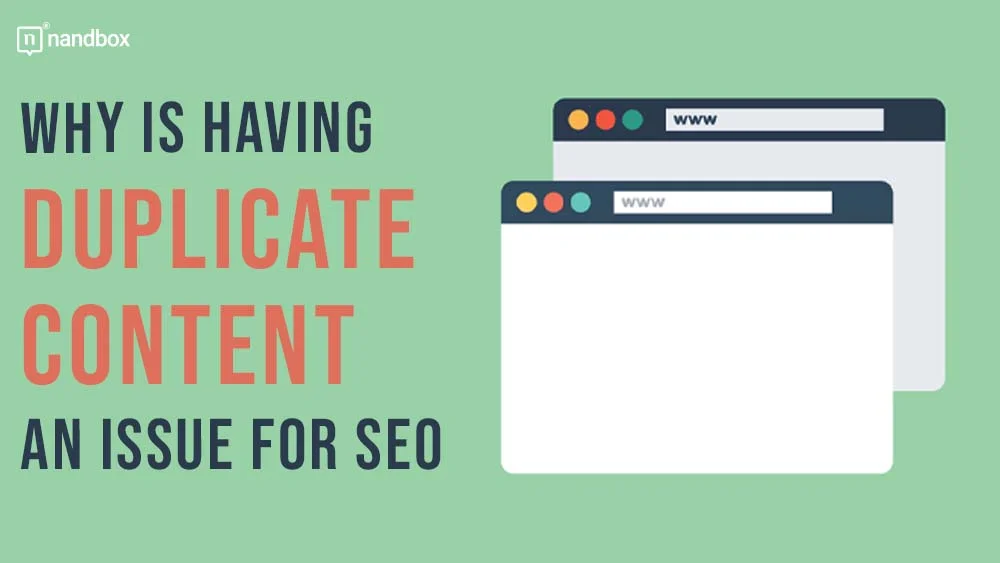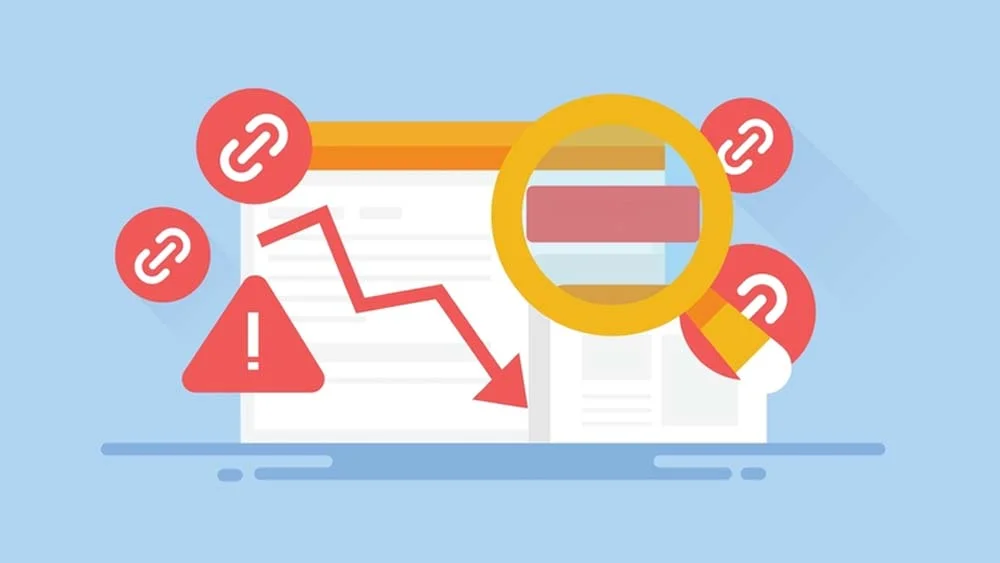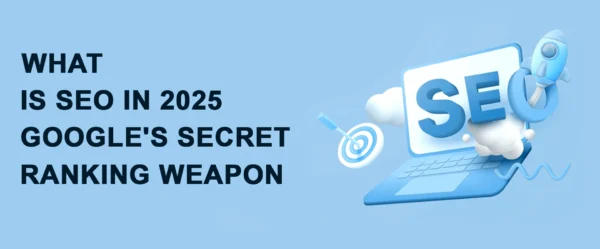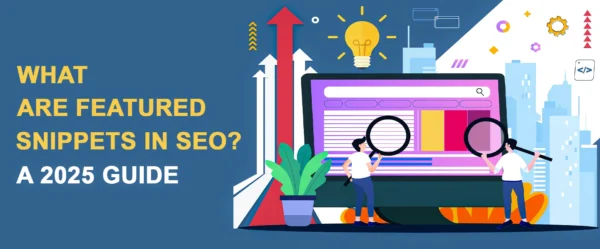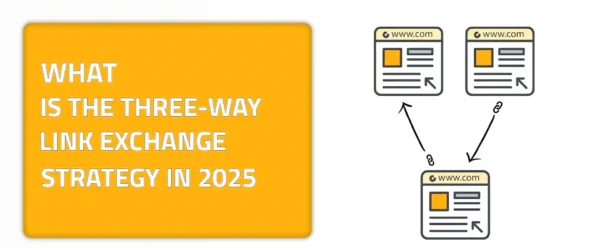The Full Guide to Knowing Why is Having Duplicate Content an Issue for SEO
Why is having duplicate content an issue for SEO? This is a question that has been on several SEO blogs. One that I decided on addressing through this guide. Let’s delve into a critical aspect of SEO that often flies under the radar: the perils of duplicate content. Imagine you’ve meticulously created a webpage, pouring your expertise and effort into every single word. Yet, without your knowledge, identical replicas of your content lurk across the web like shadowy imposters, wreaking havoc on your site’s SEO.
Duplicate content poses a significant threat to SEO for several reasons. Firstly, search engines like Google struggle to decide which version of your web content they should prioritize. Something that leads to their confusion. Additionally, they may potentially lower your SERP rankings.
It’s similar to looking through identical-looking apples in search of the ripest one, which could be a daunting task indeed. Moreover, duplicate content can erode your site’s authority and credibility over time. Instead of consolidating SEO strength into a single authoritative page, it’s dispersed among duplicates, diminishing your site’s overall visibility and ranking potential.
Therefore, it’s imperative for website owners and content creators to be vigilant against duplicate content issues. By employing strategies such as canonical tags, redirects, and regular content audits, you can safeguard your site’s SEO integrity and ensure that your valuable content receives the recognition it deserves in the digital realm.
Why is Having Duplicate Content an Issue for SEO? What is Duplicate Content?
There are many URLs that include blocks of text or pages that are identical or very similar to one another. This is referred to as duplicate content. If we were to put it another way, it would be comparable to having multiple copies of the same book dispersed over various shelves in a library. Whether it’s intentional or accidental, duplicate content can confuse search engines. Which leads them to have difficulties determining which version to prioritize in search results.
This can result in lower rankings. Some say this could also result in penalties for the affected website. Essentially, duplicate content undermines the uniqueness and value of your website’s content. Which makes it hard for both users and search engines to navigate and find relevant information. Potentially resulting in lower rankings for all versions or even penalties for the website.
Additionally, duplicate content can divide backlink equity among multiple URLs, reducing the authority and credibility of the site. Moreover, it can harm the user experience by providing redundant or irrelevant content, leading to decreased engagement and higher bounce rates. Overall, addressing duplicate content is crucial for maintaining SEO health and maximizing visibility in search results.
Unveiling The Myth Behind Duplicate Content Penalty
Come close; I’ll tell you something. Contrary to popular belief, search engines like Google don’t punish websites simply for having duplicate content. Instead, they aim to deliver the most relevant and diverse results to users. This is exactly like believing that Hades is evil, like he’s always depicted in Greek mythologies and movies. However, the truth is something completely different. Hades was, as a matter of fact, tricked by Zeus and Poseidon to rule the underworld because neither of them wanted to be god of the doomed. Excuse the Greek geek in me.
Going back to our topic, neither Google nor any other search engines penalize duplicate content. However, duplicate content can still have detrimental effects on SEO. When search engines encounter duplicate content, they may struggle to determine which version to prioritize, leading to lower rankings or indexing issues. This is what I called “search engine confusion.”
Moreover, duplicate content can dilute the authority and credibility of a website, as backlink equity is divided among multiple URLs. Instead of a direct penalty, think of it as a consequence of inefficient content management.
By focusing on creating unique, valuable content and implementing proper canonicalization and redirection strategies, website owners can mitigate the negative impact of duplicate content and maintain a healthy SEO performance. Below, we will debunk some of the very well-known myths about duplicate content and make sure that you understand what you should believe and what you should not.
Why is Having Duplicate Content an Issue for SEO? Myth No. 1: Duplicate Content Destroys Your Search Rankings
In today’s episode of uncovering certain lies, here’s what we at linkexchange.ai deducted for you. While search engines like Google won’t slap you with a red penalty flag for duplicate content, they do get a bit befuddled when they encounter it. Think of it like giving them a puzzle with multiple identical pieces. You yourself wouldn’t be sure which piece would fit where. This confusion can lead to lower rankings or even having your pages left out of search results altogether.
Plus, when your content appears in multiple places, it splits the connection you get with backlinks, diluting your website’s authority. So, while it’s not a direct punishment, duplicate content sure knows how to play tricks on your search rankings! What’s the solution here? Simply put, make sure that you create or write unique content that will allow you to stand out from the crowd easily.
Myth No. 2: Duplicate Content Will Definitely Get You Penalties
Let’s debunk this myth in the eyes of the beholder: having duplicate content won’t land you in the SEO naughty corner with a penalty notice from Google. Contrary to popular belief, search engines aren’t out to punish websites for duplicate content. Instead, they aim to deliver the best and most relevant results to users. Repeated or duplicate content may not result in a penalty, but it can still be detrimental to your search engine optimization efforts.
When search engines come across content that is similar or identical across many pages, they may have difficulty deciding which versions they should emphasize. Something that can result in lower ranks or indexing troubles. By itself, it is not a penalty; rather, it is a challenge that must be conquered in order to achieve ideal search performance.
Why is Having Duplicate Content an Issue for SEO? Myth No. 3: Scraper Bots Are Harmful to Your Site
Let’s put this myth to rest: scraper bots can’t directly harm your website by duplicating its content. These pesky bots are more like digital copycats, grabbing content from your site and republishing it elsewhere.
While it’s frustrating to see your hard work copied, it’s not an immediate threat to your site’s SEO. However, the real danger lies in the potential consequences of duplicate content on other websites.
When search engines find or come across similar content across multiple sites, they may have trouble determining the original source. Which will potentially impact your site’s search rankings. So, while scraper bots themselves aren’t the villains here, the duplicate content they generate can still cause some troubles that affect your SEO efforts.
Myth No. 4: Reposting Guest Posts Can Be Troublesome
Reposting guest posts on your own site typically doesn’t lead to duplicate content issues. When you host a guest post, it’s unique to your site, and search engines recognize this. They are aware that different websites might contain the same content, especially when visitors contribute it.
As long as you’re not directly copying content from other websites without permission, you’re in the clear. Reposting guest posts can actually be beneficial, as it provides fresh perspectives and valuable insights to your audience, enhancing your site’s authority and diversity of content. So, rest assured, sharing guest posts won’t land you in duplicate content trouble!
Wrapping It Up!
To wrap this up in a simple way, duplicate content definitely has it’s own toll on SEO in general. However, they are not the main villain of the story here. They are like Bucky Barnes; they cause damage but once controlled and understood, they will be completely harmless.
If you wish to delve into the realm of link exchange and SEO, check out our domain, linkexchange.ai. This is one website that will broaden your SEO circle. Furthermore, it will help you with the services you need to have a better domain authority. Also, it will enhance your website’s visibility and exposure. Check it out now and take your website’s SEO to the next level of success.


